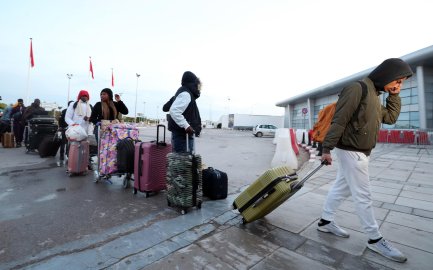Tunisia Reports 3,400 Repatriations in Early 2025
As the new year unfolds, Tunisia has witnessed a significant number of repatriations, with around 3,400 individuals returning to their home country since the start of 2025. This influx of repatriations highlights ongoing issues related to immigration, border security, and the need for effective management of migration processes.
The Context of Repatriations
Repatriations are often a complex issue, involving various factors such as humanitarian concerns, legal frameworks, and international relations. The current situation in Tunisia has raised questions about the underlying causes of these repatriations and their implications for migrants.
Reasons for Repatriation
Several reasons contribute to the high number of repatriations from Tunisia, including:
Implications for Immigration Policies
The surge in repatriations has prompted discussions around immigration policies both in Tunisia and in the countries hosting Tunisian migrants. Policymakers are faced with the challenge of balancing humanitarian needs with national security concerns.
Impact on Tunisia
The return of such a significant number of individuals can have diverse impacts on Tunisia:
International Cooperation on Migration
Addressing the complexities of migration requires collaborative efforts among countries. Tunisia’s situation exemplifies the need for effective international cooperation in managing migration flows. Countries must work together to create comprehensive frameworks that address the root causes of migration, enhance border security, and protect the rights of migrants.
Role of International Organizations
International organizations play a vital role in supporting countries like Tunisia in managing repatriations. They can assist with:
Conclusion
The report of 3,400 repatriations from Tunisia in early 2025 serves as a reminder of the challenges and realities of global migration. As countries navigate these complexities, it is crucial to prioritize the well-being of migrants while ensuring national security. Effective immigration policies, international cooperation, and a focus on human rights will be essential in addressing these challenges and fostering a more humane approach to migration.










